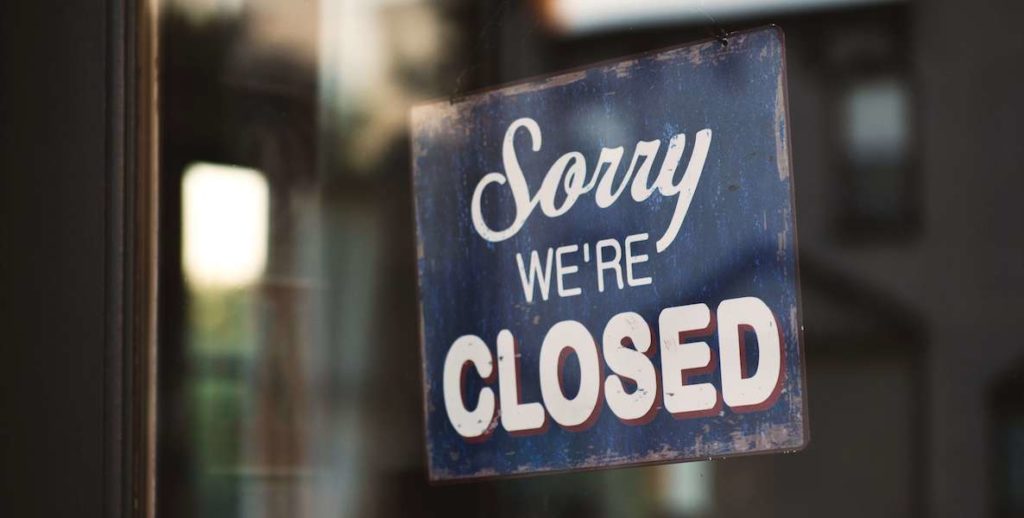After announcing a winter lockdown on indoor dining, gyms, libraries, youth sports and more until the new year, city officials are refusing to commit to a specific benchmark on Covid cases in Philadelphia in order to allow hard-up businesses to reopen.
In repeated conversation with Broad + Liberty, members of Mayor Jim Kenney’s staff, speaking on behalf of the mayor and the city’s Health Department, defended a broad second phase of restrictions as scientific best-practice, but refused to share specific details—such as a target number of cases or fatalities—that would allow businesses to operate and “high risk” activities to resume. Instead of committing to a clear benchmark, the city will be “reviewing a variety of metrics…that would allow [us] to safely start to relax some restrictions.”
The number will ostensibly have to be less than one-tenth the current citywide Covid case rate, since that is the number cited by Lauren Cox, deputy communications director for the mayor, as being acceptable to allow indoor dining: “In August and September, when the number of new cases of Covid-19 reported per day was about one-tenth of what it is now, the City began allowing more indoor activities to take place.”
From the week of November 23 to 29, the number of new Covid cases in Philadelphia averaged about 760 per day, according to The New York Times. One-tenth of this average is around 75 cases per day, which the city has not consistently hit in months, the data indicates.
For residents and businesses looking to the future, Cox made clear that the decision to ease the week-old Covid restrictions, which are certain to last until January 1 and possibly beyond, will remain under the complete discretion of the city government. “As soon as it is deemed safe enough to relax some of the Safer at Home restrictions, the city will reevaluate and respond accordingly,” Cox says.
When asked how strained business owners should plan for payroll and other expenses in the coming months, the city’s Health Department responded that “everyone in Philadelphia [should] continue to do their part to stop the spread of the virus,” and to check the city’s Covid-19 websites for guidance from the city.
The city considers gyms and restaurants open for business, citing the ability of “restaurant and gym owners [to] continue to operate their businesses” via outdoor dining, take-out and virtual or outdoor fitness classes in the month of December, when the average daily high temperature in Philadelphia is 46 degrees, with the sun setting before 5pm every evening.
According to the mayor’s team, though Philadelphia is currently bereft of cultural activities, libraries, museums, restaurants, bars and spaces for physical activity, “the city is currently open.”
Coordinating with Local Businesses
Despite assurances from the mayor’s team of regular, thorough engagement and feedback rounds with affected businesses, owners and managers were quick to denounce the latest wave of restrictions.
The Greater Philadelphia Cultural Alliance, whose 400-plus organizations generate billions of dollars in economic activity for the region, released a statement decrying Mayor Kenney’s decision and its “devastating” future consequences on local culture. “Arts and culture is essential to the City of Philadelphia and our shared humanity,” Priscilla M. Luce, the organization’s interim president and CEO, said. “Without our industry, the city…will not fully recover from the Covid-19 pandemic.”
Restaurant owners vented to the Philadelphia Inquirer soon after Mayor Kenney’s announcement detailing a second lockdown of indoor commercial dining. Despite pouring untold sums into measures to conform to Covid city regulations of previous weeks, restaurant owners have been told it was “not enough.”
“The first time around, I didn’t blame the governor or the mayor…But this time? C’mon! We saw this coming and there needs to be a little more planning on this end,” Casey Parker, co-owner of the Pistola’s bar-restaurants, told the Inquirer. “All of our [official] responses have been a little too reactive as opposed to proactive,” he added.
Philadelphia attorney Brian Fitz, representing multiple Philadelphia restaurant owners contemplating legal action against the City, shared his clients’ frustration with the City’s singular approach to decision-making: “Where is the city’s data?” Fitz asked. “These restaurants have been open. They’ve complied with restrictions. We have no reports…of restaurants being linked to any infections with regard to Covid.”
As the data accumulates, Philly residents, and the neighbors whom we affect, will have to rely solely on Mayor Kenney’s team to make decisions about the perplexing public health challenge of Covid-19—a virus thus far responsible for the deaths of nearly 5,000 residents of Philadelphia and its four suburban collar counties, but which has wrought untold economic misery and social isolation for millions of others.
Albert Eisenberg is a co-founder of Broad + Liberty. Spencer Landis is a student at the University of Pennsylvania. He is currently interning at Broad + Liberty. You can follow them at @albydelphia and @sdlandis25, respectively.

